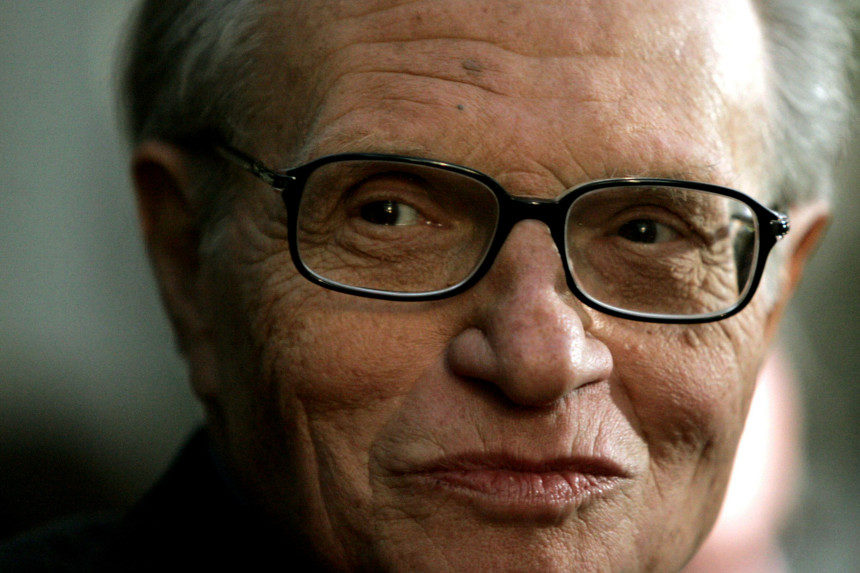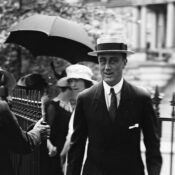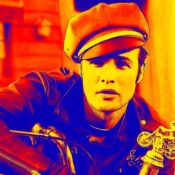Larry King wasn’t ready to leave us even at 87. But he would have loved the worldwide send-off he got. For decades as an interviewer, he talked to the most famous and powerful figures. We all flashed back to scenes from those 30,000+ interviews: Frank Sinatra admitting to Larry that he still got stage fright, Marlon Brando giving the host a big kiss, Putin and Gorbachev talking policy, his huge appreciative laughs at Don Rickles and Mel Brooks and Jerry Seinfeld. Every major politician you could name answered Larry’s deceptively simple questions and at the same time made big news. Lady Gaga wore his trademark suspenders on his show, and so did Miss Piggy.
Larry and I were friends for many years. I admired him as a broadcaster and a showman. He revealed to me that his secret was “being myself.” He panicked the first night he was on the radio and confessed to the audience he was terrified because he had just changed his last name from Zeiger and was calling himself Larry King for the first time.
Over the years, he heard all the swipes from other journalists about his “soft” questioning, but he knew his successful technique came from his intense curiosity and his knack for really listening. The top guests kept coming. “I wanted the audience to learn something and be entertained,” he said. The huge stars could feel his admiration. He was a genuine fan.
I shared the tear in his eye the night he said goodbye to CNN. I knew he would be back because doing what he did better than anyone else was life for him.
This interview is based on many personal talks and interviews Jeanne has had with Larry King over the years.
Jeanne Wolf: In your long career, what drove you? Was it ratings?
Larry King: It’s really funny that I say this. I swear to you that I never thought about ratings during my whole career. All I ever thought was, Am I doing a good job? You can’t make someone like you. You can’t force someone to watch you. I’ve been like that since the first day I was on the radio in Miami. That’s really the truth.
JW: There’s something special about your connection to your interview subjects. What makes a Larry King interview unique?
LK: What I have is the ability to be me and ask good questions. I am really interested in the people I’m interviewing. I’m driven by curiosity, I want to know things, and I’m the last person you’d want to sit next to on an airplane unless you wanted to tell your life story. I don’t like to answer questions, I like to ask them.
I’m the last person you’d want to sit next to on an airplane unless you wanted to tell your life story.
I don’t give my own opinions. I was never a soapbox talk show host. I don’t get into arguments, and I’m not confrontational. I have to think back a long time to when I lost my cool during a show. I think it was when George Wallace came in to do an interview in Miami. He said, “I don’t see any Blacks working here.” I said, “They own the station. They’re out to lunch.” And we got into a rip-roaring argument.
JW: You’ve been married eight times. At this age, do you have some perspective about that?
LK: I’ve never been a womanizer, but I love the chase and I love being in love. Rather than just live with someone, I’ve always gotten married. I’m not good at marriage, but I’m a great boyfriend. But the truth is, I’ve never really understood women. I have learned one thing: When they suggest, it’s not a suggestion. It’s like when we bought our house and my wife at the time walked in and said to me, “Don’t you love this carpet?” Automatically I knew that’s the carpet I was going to live with.
But I don’t have any regrets. Some great things came out of my marriages, especially some wonderful kids. I think the most important thing I’ve done is being a father. I used to drive my youngest sons to school every morning and pick them up too when I could. We spent a lot of time together. I guess I’d like to be remembered first as a good dad.
JW: After you left CNN, you continued to have a show on Ora TV, and then Hulu. Is retirement ever going to be in the picture?
LK: Milton Berle used to say, “Retire to what?” I’m not like Johnny Carson, who left and didn’t miss it. I couldn’t be idle. I remember when I came out of a coma after my stroke. I really thought about ending it all. I didn’t want to spend my last days totally dependent on other people, especially the ones I loved. There’s an old saying: “If you’re not appearing, you’re disappearing.” After I recovered from my stroke, I couldn’t wait to get back. I get energized when that red light flashes on the camera and you know you’re on the air. Doing what I do has kept me going. I’m that little kid from Brooklyn who got to sit at the head table of history, and maybe that makes me the luckiest guy in the world.
I remind myself every morning: Nothing I say this day will teach me anything. If I’m going to learn I must do it by listening.
This article will be featured in the March/April 2021 issue of The Saturday Evening Post. Subscribe to the magazine for more art, inspiring stories, fiction, humor, and features from our archives.
Featured image: Larry King (mccv / Shutterstock)
Become a Saturday Evening Post member and enjoy unlimited access. Subscribe now



